United Airlines Just Teased This Major Change to Future Flights
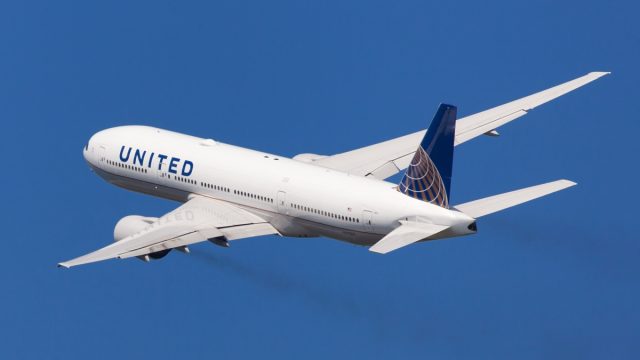
Air travel can feel plenty challenging these days, with staffing shortages causing major delays and cancellations, while pent-up demand means packed airports and snaking security lines. But the future of air travel might look quite different in all sorts of ways, as United Airlines just demonstrated with a groundbreaking test flight. Read on to learn more about why the flight was so significant and what it means for your flying experiences in the future.
RELATED: Delta Air Lines Just Made This Major Update for All December Travelers.
United Airlines flew the first passenger flight using sustainable fuel.
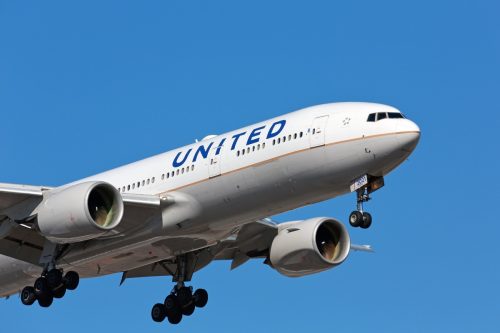
For the first time ever with passengers on board, United Airlines just flew an aircraft on 100 percent sustainable aviation fuel (SAF) instead of fossil fuel, Fast Company reports. The flight took off from Chicago’s O’Hare airport and landed at Washington, D.C.’s Ronald Reagan Washington National.
RELATED: Delta CEO Just Warned This Major Change Is Coming to Flying.
United wants to demonstrate it’s possible to fly using lower-emissions fuel.
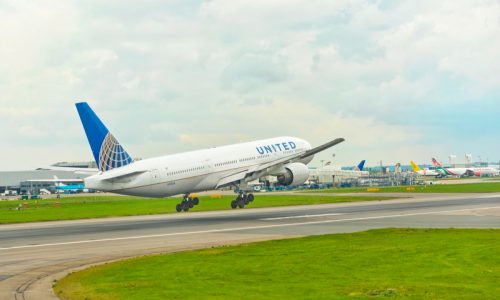
The airline has used greener fuel on flights before. In fact, daily flights from Los Angeles International airport use some of the environmentally friendlier fuel mixed with regular jet fuel. But per Fast Company, regulations currently cap the blend at 50 percent, and United wants to show it’s possible to do much better.
The sustainable jet fuel can reduce emissions by 80 percent.
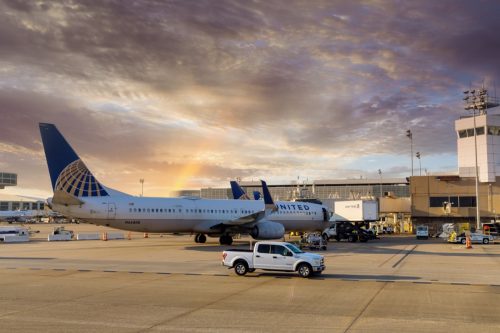
“United is making an aggressive commitment to climate change, and this 100-percent SAF flight will demonstrate the viability of using SAF fuel to achieve an even lower carbon footprint,” United noted in an invitation to journalists to join the historic flight. “SAF is an alternative jet fuel that can provide up to an 80-percent reduction in lifecycle carbon emissions. SAF is a solution available today to help decarbonize aviation.”
The fuel is made from cooking oils, grease, and fats, blended with compounds derived from plant sugars.
RELATED: For more air travel news delivered straight to your inbox, sign up for our daily newsletter.
Passengers can expect an increase in ticket prices as carriers move toward greater sustainability.
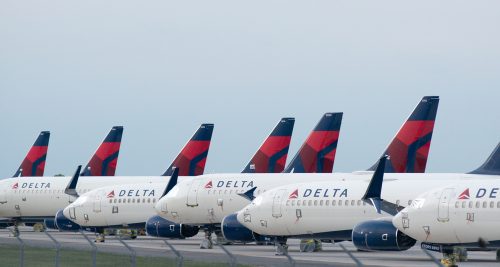
While United aims to demonstrate that more sustainable commercial aviation is possible, passengers can likely expect higher ticket prices as part of the industry’s overall shift toward an environmentally friendlier future.
During an interview with the BBC, Delta Airlines CEO Ed Bastian predicted that the fight against climate change meant flights would soon become more expensive. As his airline—the second largest in the world—works to reduce its footprint, it has already been spending $30 million a year to offset its carbon output. The company became carbon neutral as of March 2020.
And the airline only plans to increase that spending in the coming years, spending more than $1 billion in the next decade to cancel out all of its emissions by investing in fuel-efficient planes, sustainable aviation fuels, and removing carbon from the atmosphere, the BBC reports. “Over time, it’s going to cost us all more, but it’s the right approach that we must take,” Bastian said.
Research conducted by Andreas Schafer, PhD, professor of energy and transport at University College London, and his team found that carriers’ increased costs would force them to increase ticket prices by 10 to 20 percent, per the BBC.
RELATED: If You’re Offered This on a Plane, Just Say No, Flight Attendants Warn.